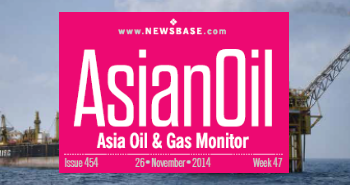NRG AsianOil: KNOC seeks to sell North Sea fields

State-owned Korea National Oil Corp. (KNOC) is reportedly seeking to sell a number of its upstream assets in the North Sea as it strives to reduce its debt load.
The company wants to sell subsidiary Dana Petroleum’s 10% stake in the Tolmount project in UK waters as well as its entire Dutch and Danish operations, Reuters reported on January 29, citing a company sales document.
KNOC acquired Dana Petroleum in September 2010 via a hostile takeover that was valued at $2.6bn, or $2.9bn when including the company’s convertible bondholders. The deal, reported at the time to be the first successful hostile acquisition by an Asian state-owned company, gave the major access to 36 oil and gas fields in Egypt and the North Sea.
Reuters quoted the sales document as saying the sale was part of a “strategic review”, while noting that the fields were expected to produce 20,000 barrels of oil equivalent per day (boepd) by 2025 once near-term drilling projects had been taken into account.
The Tolmount project, for example, is expected to deliver first gas in the second quarter of this year. UK developer Premier Oil operates the Tolmount project with a 50% stake, while Dana holds the remaining interest. Premier walked away from a $191mn deal to buy a 25% stake in the Tolmount project from Dana in June 2020. Private equity-backed Chrysaor is currently in the process of executing a reverse takeover of Premier.
KNOC was first reported to be looking to reduce its holdings in Dana in January 2019 amid a wider push by the South Korean government to reduce the debt-equity ratios of the country’s state-owned companies.
KNOC’s debt ratio has exploded in recent years, climbing from 453% in 2015 to 3,021% in 2019 and then to an estimated 7,240% by July 2020. KNOC’s efforts to reduce its debt ratio to a previously stated target of 500% via restructuring have floundered in the face of the global economic downturn triggered by the coronavirus (COVID-19) pandemic.



Follow us online